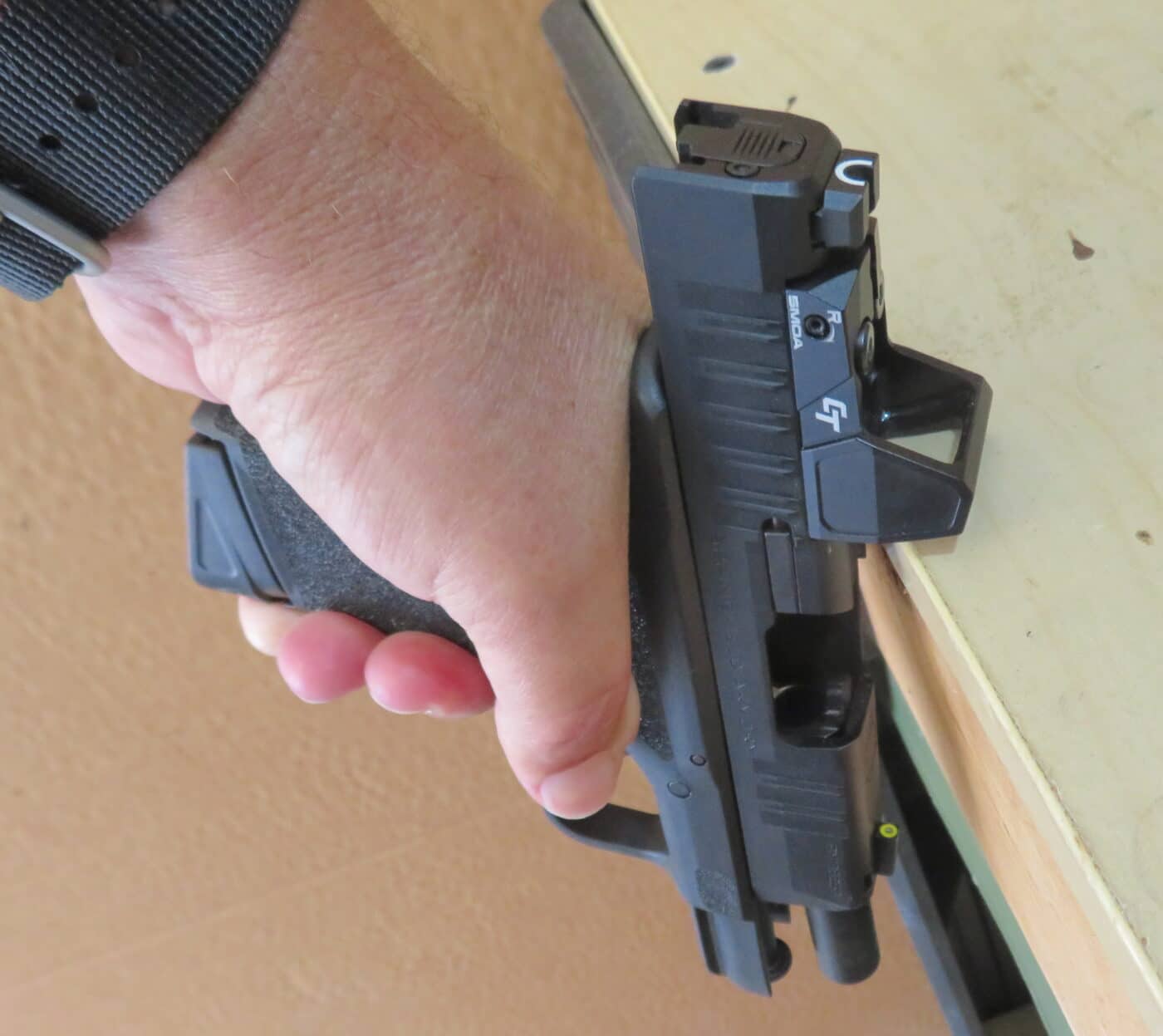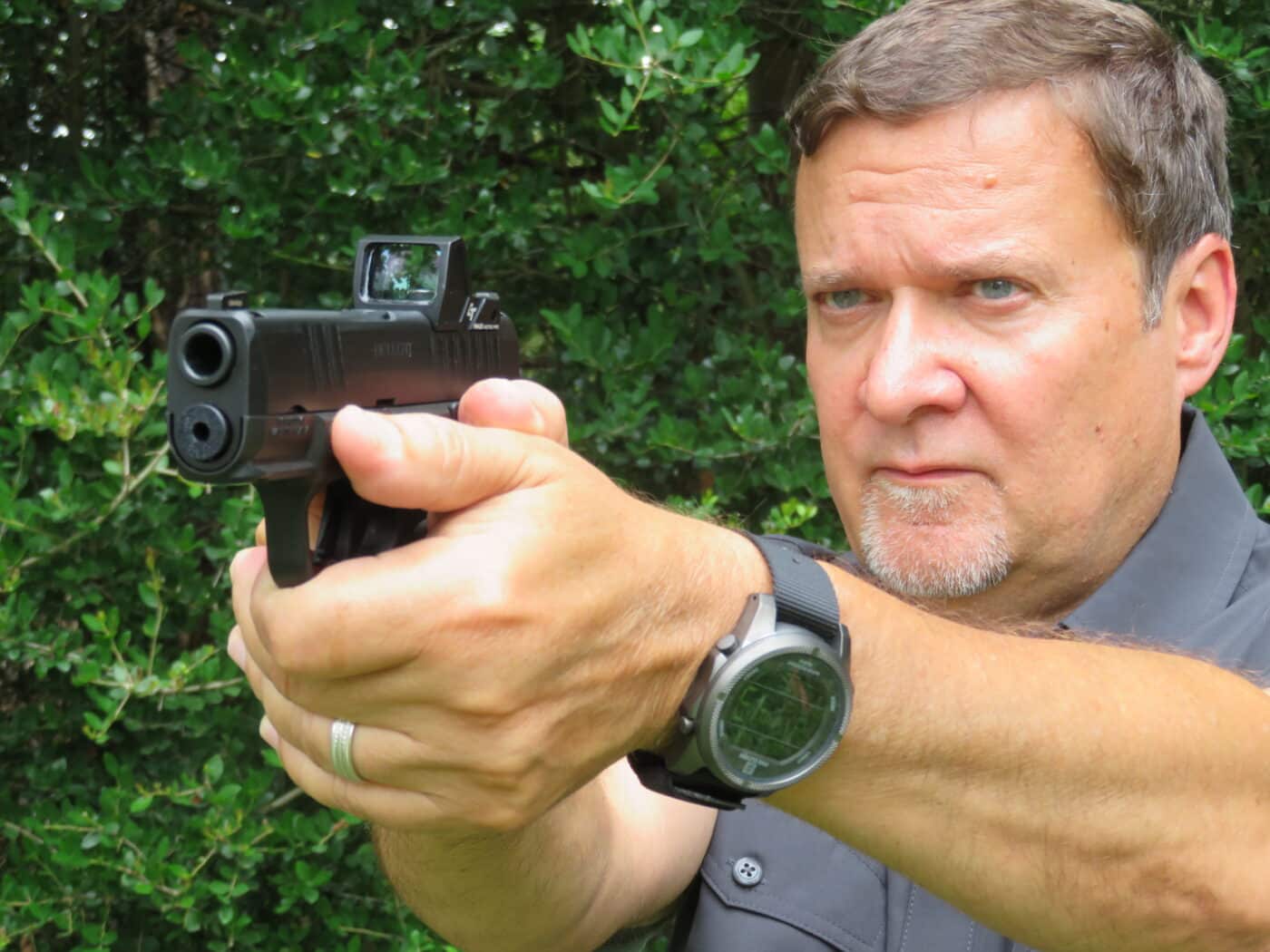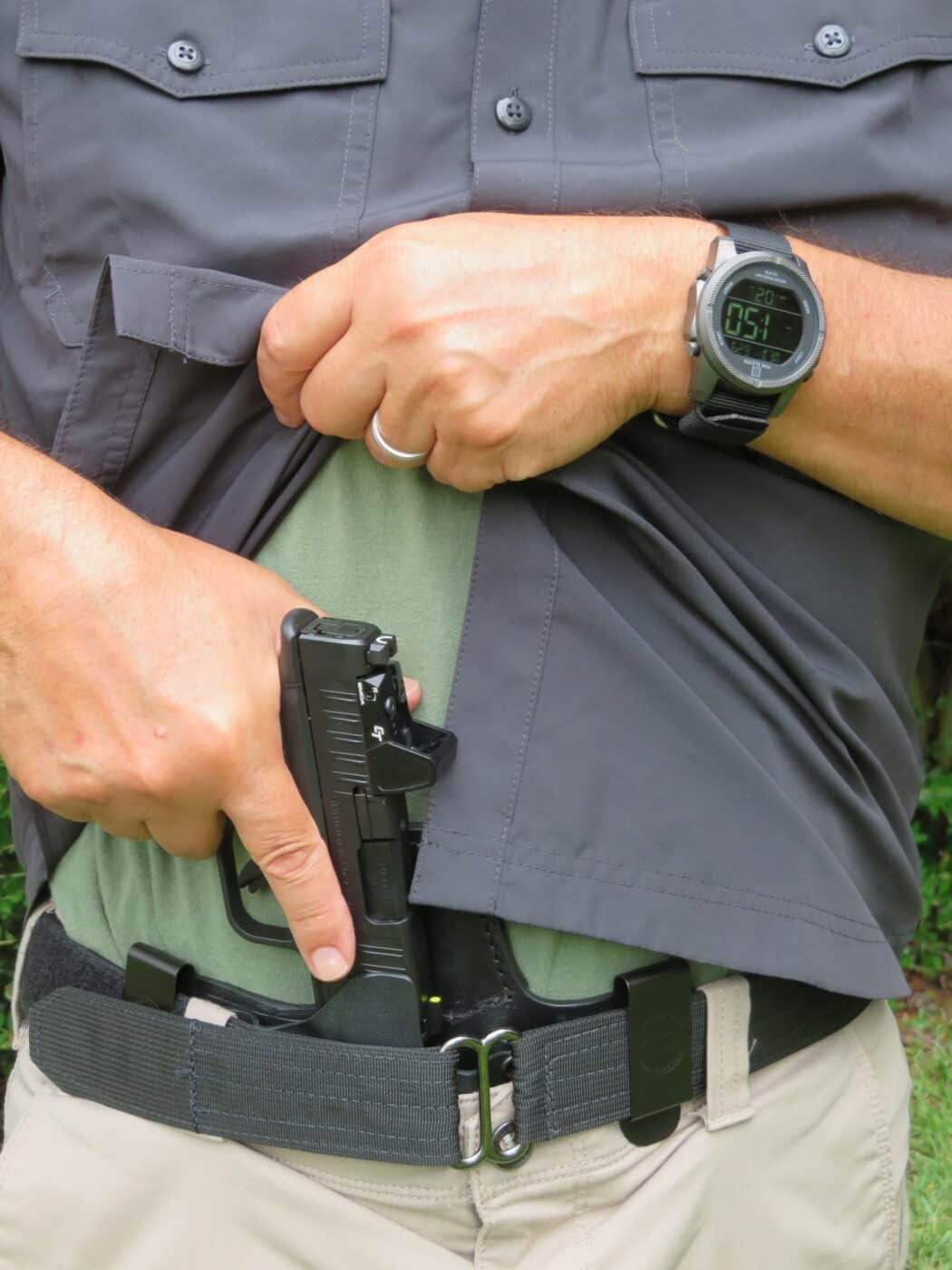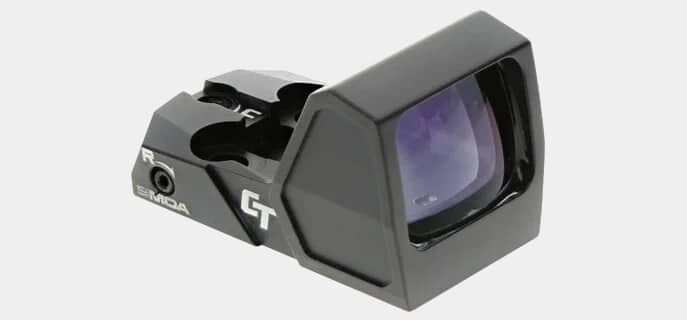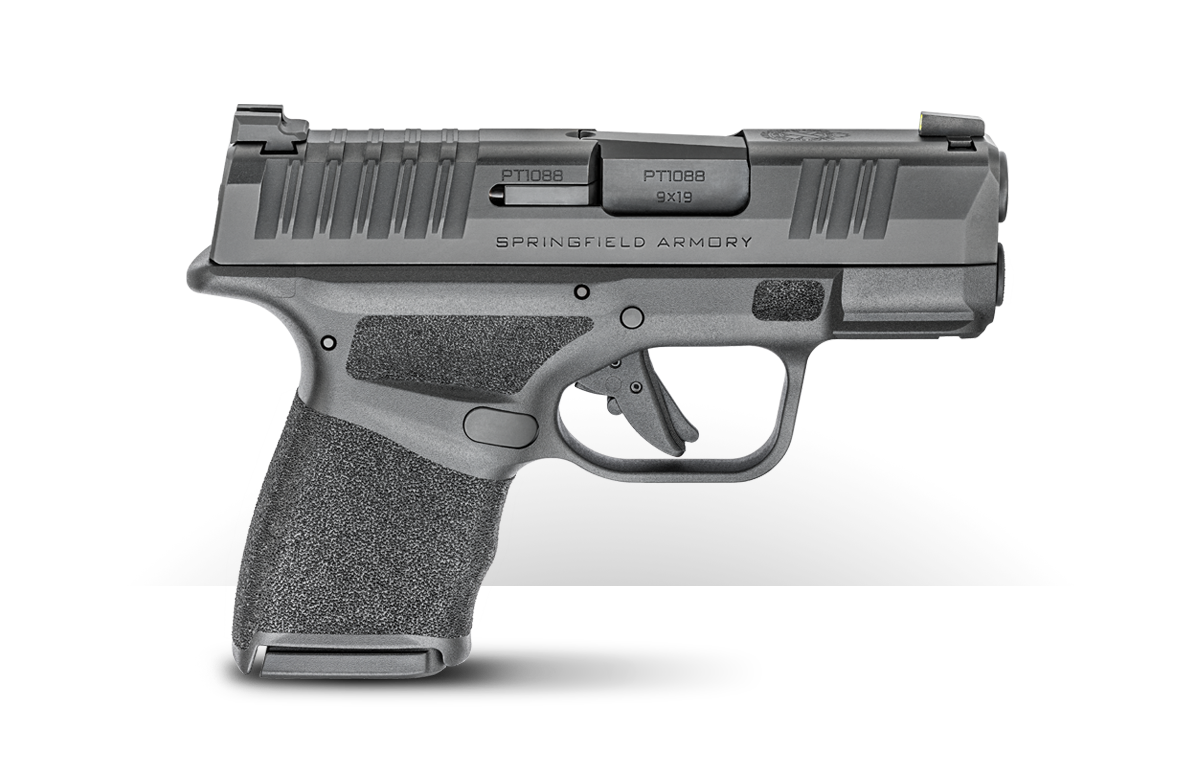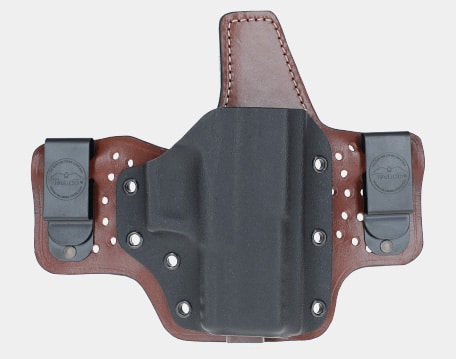Or, we can have astigmatism; thats why some of us wear glasses or contact lens.
We have predominantly red cones, followed by green, then blue.
So, it makes sense that first generation dot optics used a red dot reticle.
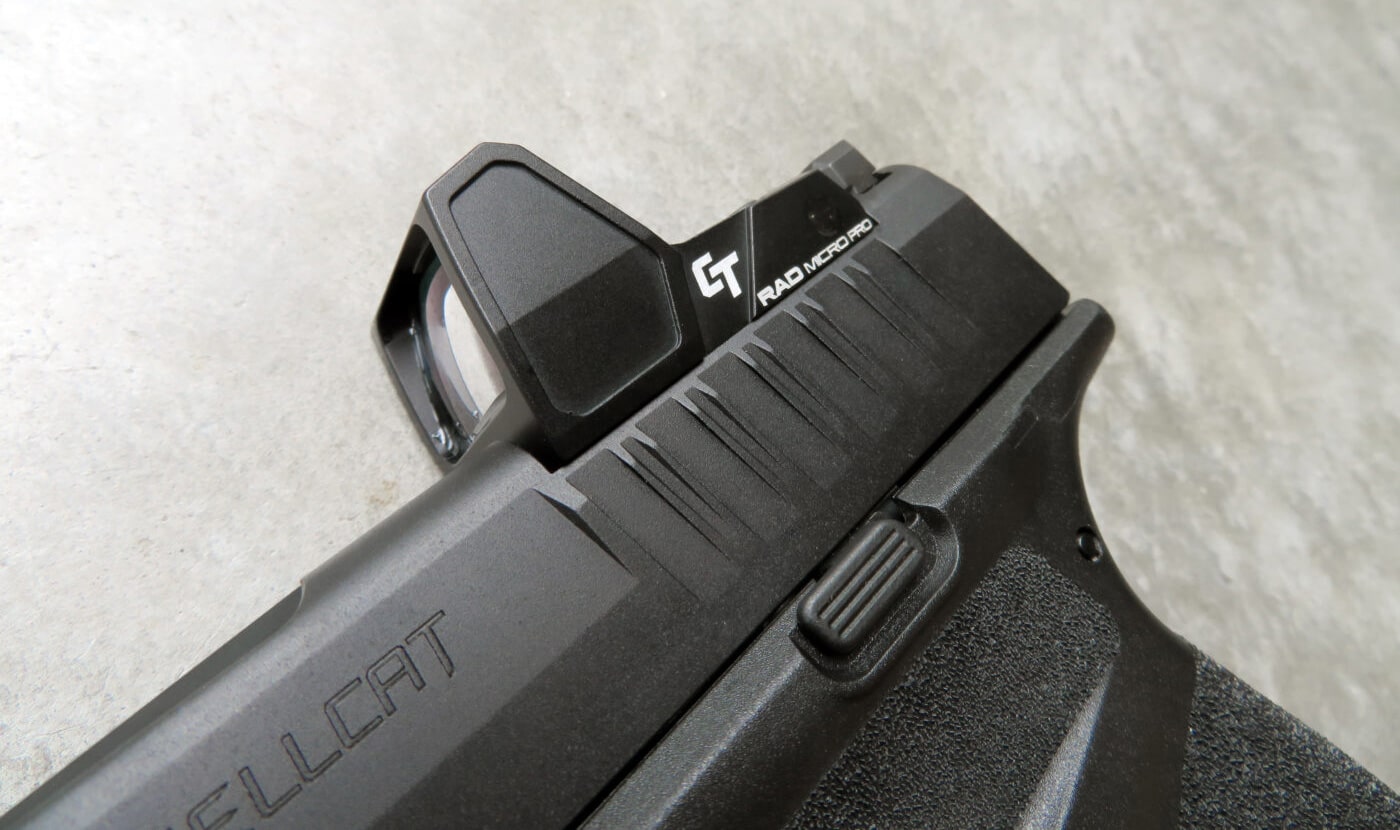
Red is easy to see and it definitely pops on a dark background.
Back then, you could also get any color dot you wanted as long as it was red.
They werent that durable, either, and they were expensive.
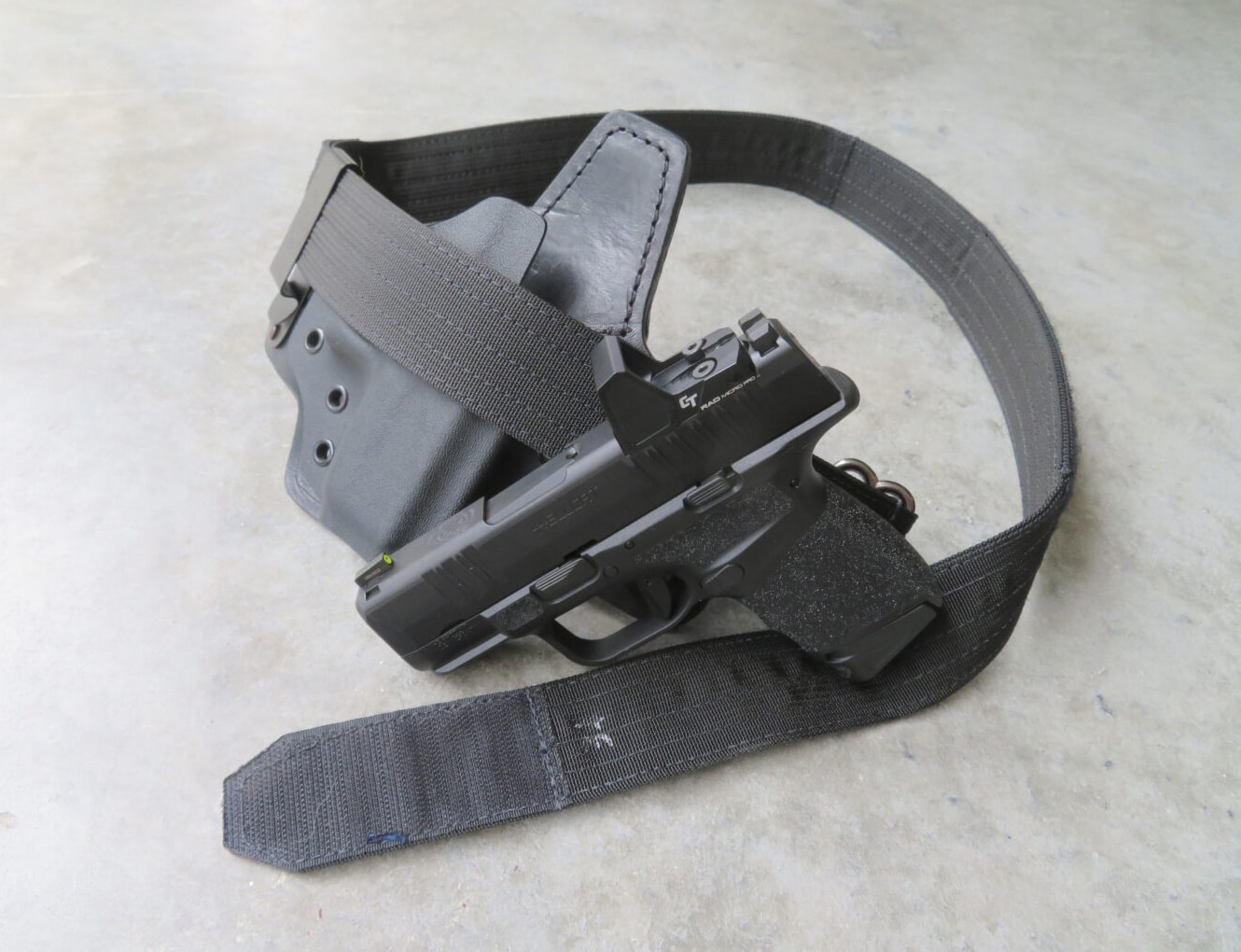
There is no time to fuss with a manual brightness button.
And lastly battery life.
Dead batteries are not an option.
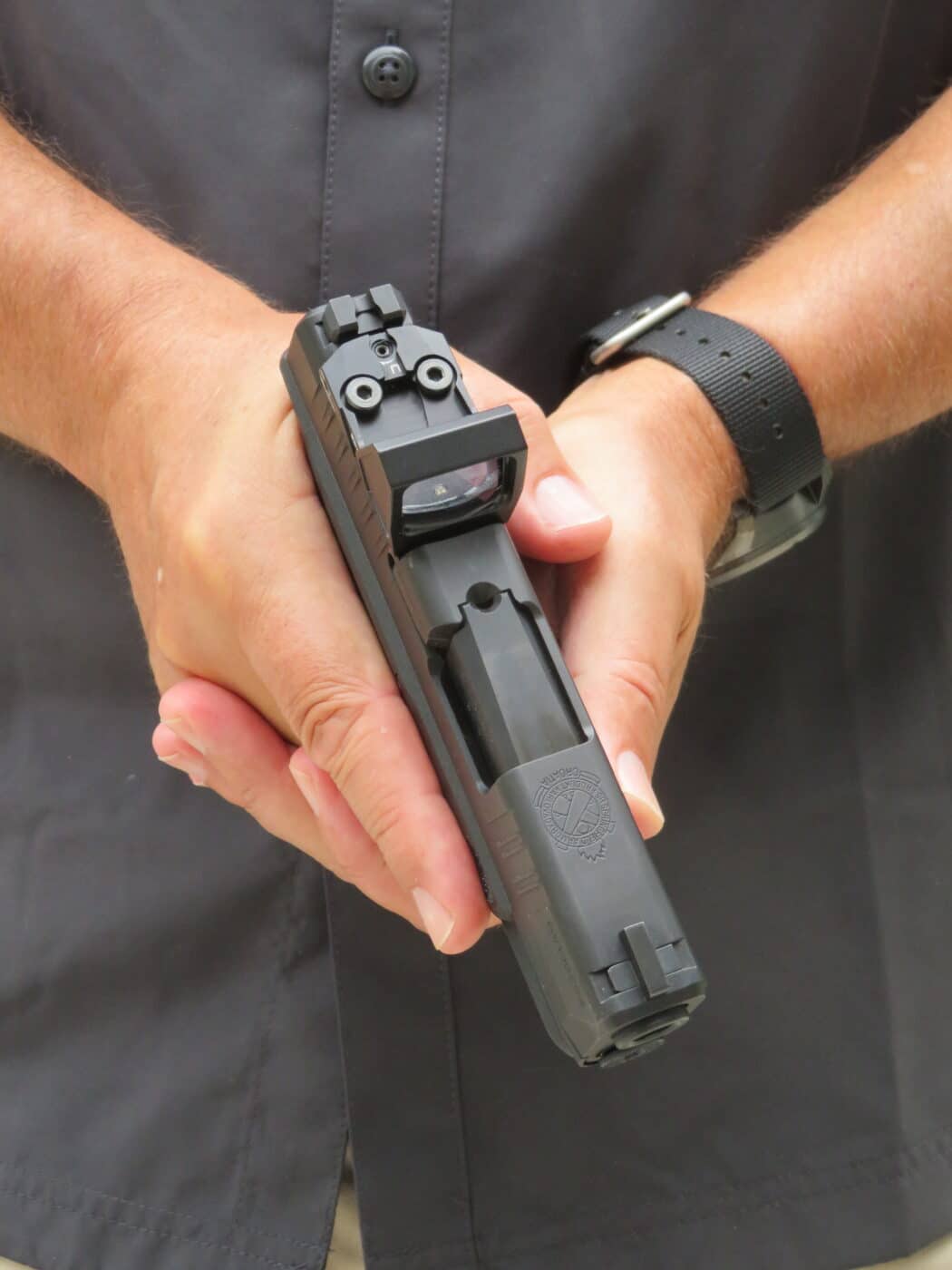
Ok, maybe its five characteristics.
Finally, I like a sight that allows me to co-witness with my existing iron sights.
The Crimson Trace RAD Micro Pro offers all these things, and it comes in a green dot variant.
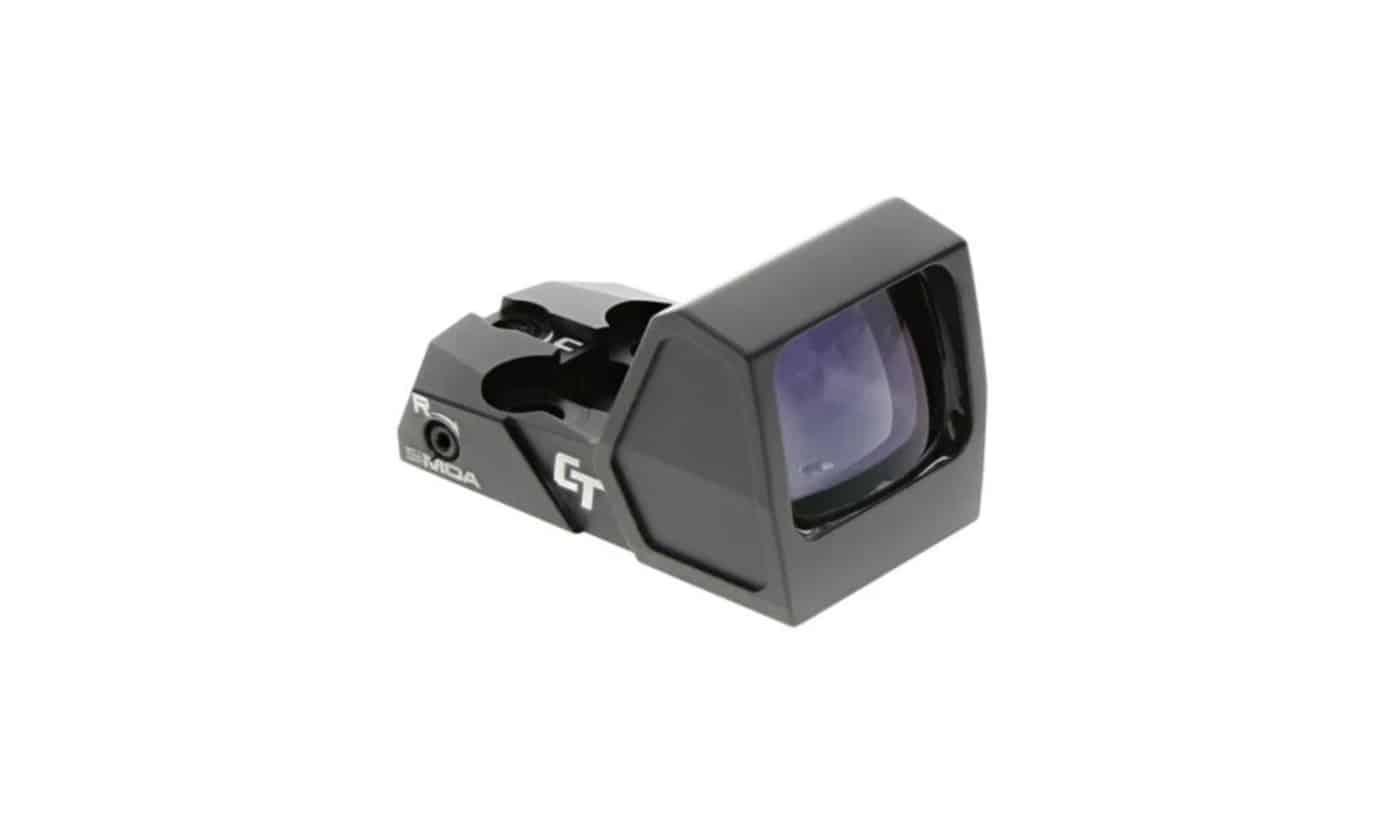
Its RAD
RAD stands for Rapid Aiming Dot.
The Crimson Trace RAD Micro Pro is a good example of the evolution of the dot sight.
When I am in the shade, the dot brightness rapidly adjusts.
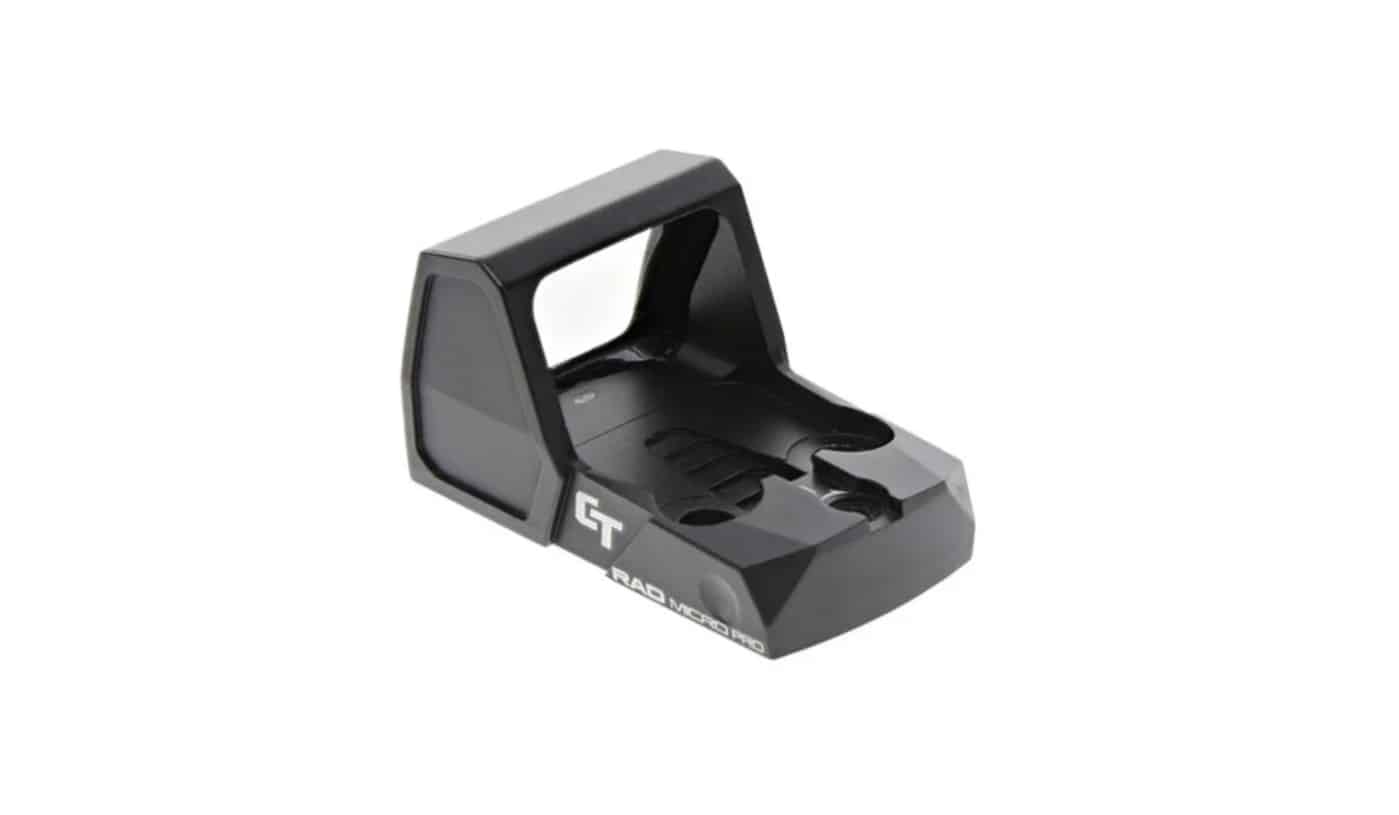
The CR1632 used is available at nearly any convenience store or gas station.
Back-up systems like this are always welcome.
I havent babied the Micro Pro.
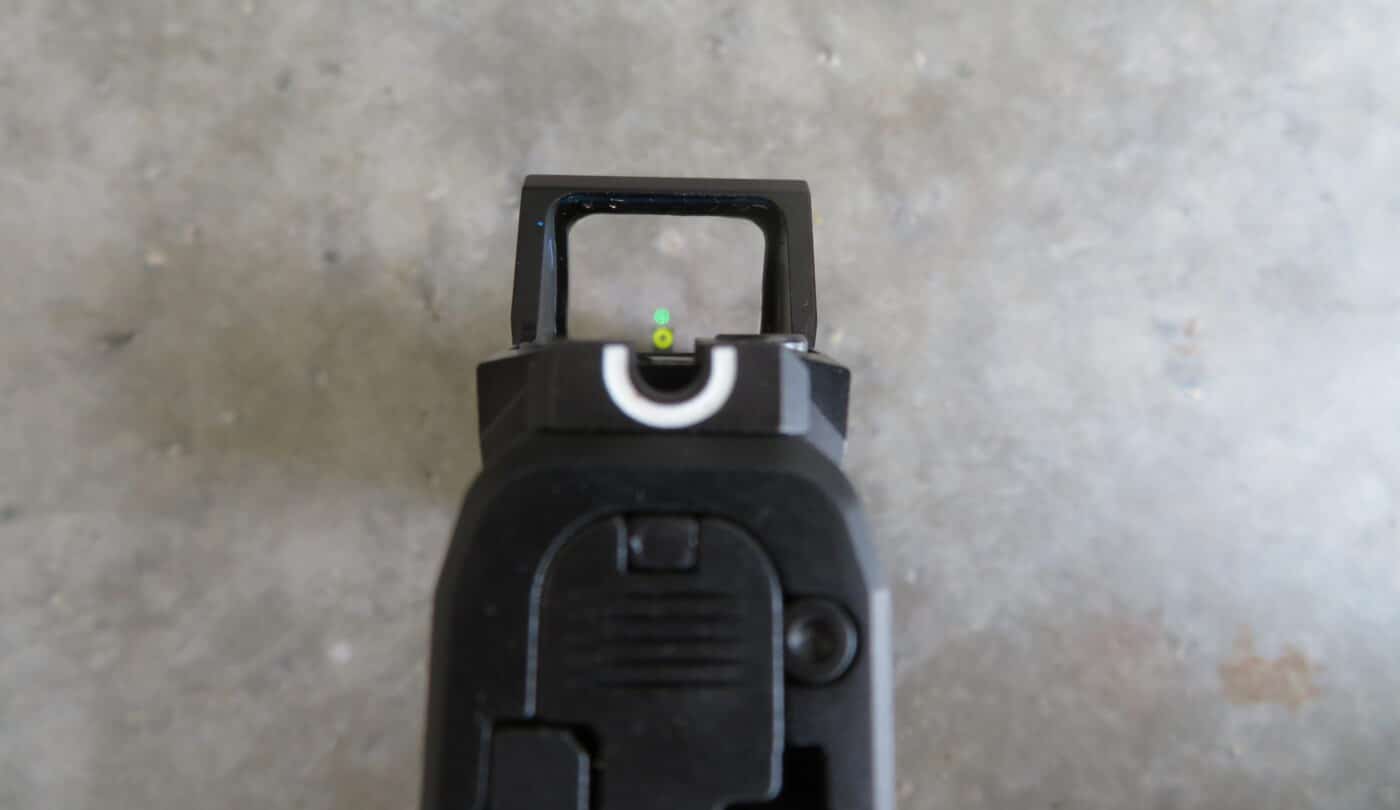
Carrying a micro-9mm with an optic is no different than carrying a micro-9mm with standard iron sights.
I use a Falco hybrid A116 holster, which has a Kydex holster shell attached to a leather back.
Two low-profile steel belt clips keep it attached to my nylon EDC Belt Company Foundation Belt.
